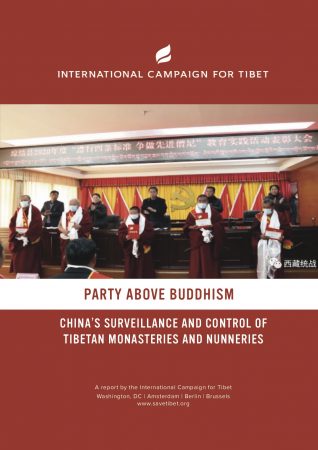Report Summary
- The United Front Work Department, the agency that now has direct oversight of all religions, reportedly had its budget in the Tibet Autonomous Region nearly triple from 23.9 million yuan in 2016 to 62 million yuan last year. The TAR spans about half of historical Tibet.
- Although the latest official data are not available, a state media outlet said in 2015 that as many as 6,575 cadres from the party and government work in the 1,787 monasteries in the TAR. That means an average of three to four cadres per monastery.
- China has held “reeducation” programs for monks and nuns that pressure them to be loyal followers of the party, even at the expense of their religious beliefs. China has also enforced a “Four Standards” policy that essentially requires monks and nuns to serve as propagandists for the government.
- Along with forcing monks and nuns to denounce the current Dalai Lama, China is claiming authority to appoint his reincarnation. China has enacted absurd regulations requiring Tibetan lamas to get government approval before reincarnating.
- It shows how Sinicization of Tibetan Buddhism requires Tibetan Buddhist institutions, cannon and the clergy to be subservient to the Communist Party’s leadership and its core values. The policy aims to curb the clergy’s moral visions and conform it to the state ideology.
DOWNLOAD REPORT
